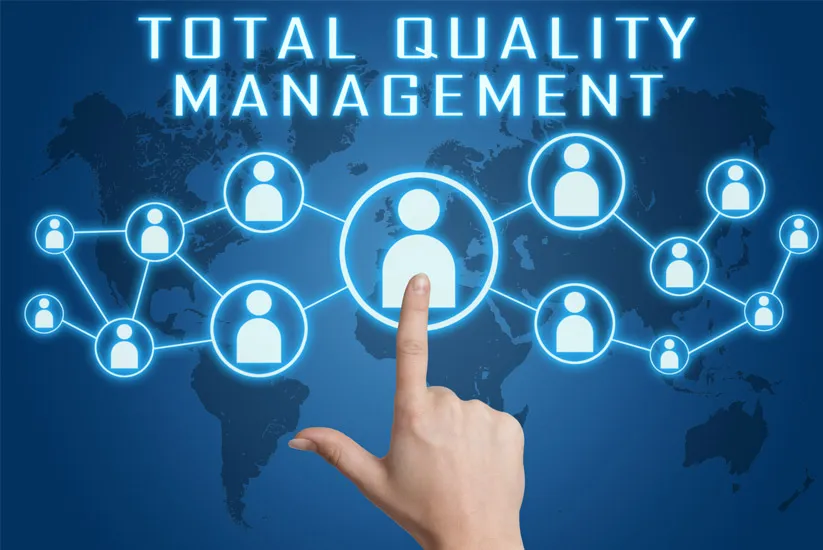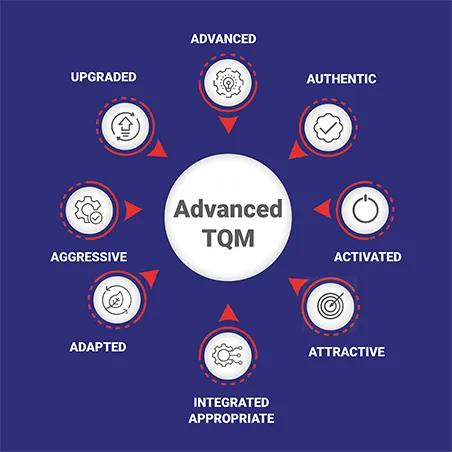
Opening Ceremony – WQM 2021
November 9, 2021
What is SIRI Assessment and How does it help Industry 4.0 Initiatives?
December 8, 2021How 5S, Lean, and Six Sigma Complement Each Other
Business leaders across the world are constantly seeking ways to improve the quality of their products and processes, reduce waste, and improve employee engagement and customer satisfaction. To achieve these goals, worldwide organizations across business sectors are adopting concepts like 5S, Lean and Six Sigma. Although each of these concepts offers a unique set of benefits in isolation, when used in combination, they can deliver far more powerful results. Read on to learn more!
What is Lean?
Lean is a systematic methodology with the goal of accelerating the velocity and reducing the cost of any process by removing waste.
It helps organizations create the required value with fewer resources and less waste, while always working towards better quality. And because lean drives systematic and continuous learning, it allows organizations to be highly adaptive to the ever-changing business environment.
When adopted in an efficient manner, Lean can result in:
Here’s an example: A manufacturing company could double its production volume with the same facility by removing wastes like changeover time from one model to another, removing non-value-add activities like waiting time, lowering downtime of equipment by better autonomous and preventive maintenance, and reducing multiple inspections by introducing Poka-Yoke (mistake proofing) in critical steps of the process.
What is Six Sigma?
Six Sigma is an improvement methodology or management system that applies statistical methods to measure and reduce variation in processes and aids in achieving, sustaining, and maximizing business success.
Offering tools to improve the efficiency of business processes, Six Sigma helps in enhancing performance and minimizing process variations – thus leading to a substantial reduction in defects and improvement in profits.
When done right, Six Sigma can enable:
Six Sigma helped one appliance company in India to save INR 20 crores (annualized savings) by reducing customer complaints, internal rejection, and rework and optimized use of input raw materials such as Paints and consumables.
What is 5S?
5S is a system that brings in efficiency, competitiveness, and a systematic approach to workplace organization. By ensuring everything is in order and by keeping the workplace clean, 5S makes it easier for people to do their jobs – without wasting time or risking injury.
When implemented correctly, 5S can lead to:
For instance, on the shopfloor, implementing 5S processes can help in creating a clean, safe and comfortable work environment. Removing clutter from the workplace can lead to release and better use of the space. In recent news, the Government of India has realized INR 40 crores by disposing of old files and 8 lakhs square feet of space has been released for purposes other than storage.
How they complement each other
Although Lean and Six are great ways to improve, standardize processes, improve visibility, and reduce waste, when used together, they can deliver extraordinary results. As the integration of two powerful business improvement approaches, Lean Six Sigma together paves the way for faster cycles of production or delivery, fewer defects, and less rework.
When combined with 5S, Lean Six Sigma are known to deliver far more powerful results:
As methodologies sponsored and directed by the leadership, Lean, Six Sigma, and 5S are increasingly being used by organisations across the world. Aligned with business objectives and tactics, they focus on a disciplined and systematic execution process and have a proven track record of delivering business results.
But instead of choosing one over another, taking advantage of the strengths of all three strategies can act as a comprehensive and integrated solution to solving all types of problems related to process improvement and waste reduction.
Executing all three together makes it possible to fully take advantage of their combined strengths and move towards a cleaner, leaner, and more efficient business – while having an enterprise that is constantly growing and improving.





